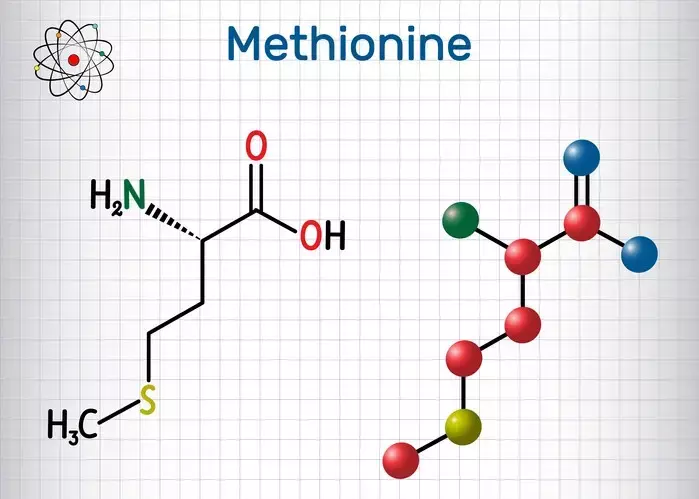- Home
- Medical news & Guidelines
- Anesthesiology
- Cardiology and CTVS
- Critical Care
- Dentistry
- Dermatology
- Diabetes and Endocrinology
- ENT
- Gastroenterology
- Medicine
- Nephrology
- Neurology
- Obstretics-Gynaecology
- Oncology
- Ophthalmology
- Orthopaedics
- Pediatrics-Neonatology
- Psychiatry
- Pulmonology
- Radiology
- Surgery
- Urology
- Laboratory Medicine
- Diet
- Nursing
- Paramedical
- Physiotherapy
- Health news
- Fact Check
- Bone Health Fact Check
- Brain Health Fact Check
- Cancer Related Fact Check
- Child Care Fact Check
- Dental and oral health fact check
- Diabetes and metabolic health fact check
- Diet and Nutrition Fact Check
- Eye and ENT Care Fact Check
- Fitness fact check
- Gut health fact check
- Heart health fact check
- Kidney health fact check
- Medical education fact check
- Men's health fact check
- Respiratory fact check
- Skin and hair care fact check
- Vaccine and Immunization fact check
- Women's health fact check
- AYUSH
- State News
- Andaman and Nicobar Islands
- Andhra Pradesh
- Arunachal Pradesh
- Assam
- Bihar
- Chandigarh
- Chattisgarh
- Dadra and Nagar Haveli
- Daman and Diu
- Delhi
- Goa
- Gujarat
- Haryana
- Himachal Pradesh
- Jammu & Kashmir
- Jharkhand
- Karnataka
- Kerala
- Ladakh
- Lakshadweep
- Madhya Pradesh
- Maharashtra
- Manipur
- Meghalaya
- Mizoram
- Nagaland
- Odisha
- Puducherry
- Punjab
- Rajasthan
- Sikkim
- Tamil Nadu
- Telangana
- Tripura
- Uttar Pradesh
- Uttrakhand
- West Bengal
- Medical Education
- Industry
Higher methionine levels may protect against cerebrovascular diseases

Methionine, the principal sulfur-containing amino acid in proteins, plays critical roles in cell physiology as an antioxidant and in the breakdown of fats and heavy metals. A recent study finding suggests greater availability of methionine, an essential amino acid, may play a role in the prevention of cerebrovascular diseases (CVD). The research has been published in the journal Stroke on December 22, 2020.
Previous studies suggest Vitamin B supplements lower circulating concentrations of homocysteine and may reduce stroke incidence. However, the link between other sulfur-containing compounds and its association with incident cerebrovascular diseases is yet to be investigated. For this purpose, a research team conducted a study to evaluate the association between sulfur-containing compounds and the incidence of CVD.
It was a nested case-control study. It was nested within the EPIC (European Prospective Investigation Into Cancer and Nutrition)-Norfolk cohort. Researchers identified 480 incident cases of cerebrovascular diseases and 480 controls and matched them by age, sex, and year of baseline examination (1993–1997). They used liquid chromatography-tandem mass spectrometry (LCTMS) to assess the baseline plasma samples for sulfur-containing compounds including methionine, homocysteine, cystathionine, cysteine, glutathione, and taurine. They examined the association of concentrations of each of the compounds and the ratio of methionine to homocysteine (representing the activity of one-carbon metabolism) with the risk of incident cerebrovascular diseases, adjusted for potential confounders.
Key findings of the study were:
• Researchers found the plasma methionine and the methionine/homocysteine ratio were inversely associated with risk of cerebrovascular diseases, with odds ratios per 1 standard deviation of 0.83 and 0.82 respectively.
• They also found the association of methionine remained significant after adjustment for homocysteine.
• However, they found no significant association between the incident of cerebrovascular diseases and other examined compounds.
The authors concluded, "These findings suggest that greater availability of methionine, an essential amino acid, may play a role in the prevention of cerebrovascular diseases and explain the previously recognized link between elevated homocysteine and stroke".
"Further research is needed to determine causation and the potential of circulating methionine as a target in cerebrovascular disease prevention" they added.
For further information:
https://www.ahajournals.org/doi/full/10.1161/STROKEAHA.120.029177
Medical Dialogues Bureau consists of a team of passionate medical/scientific writers, led by doctors and healthcare researchers. Our team efforts to bring you updated and timely news about the important happenings of the medical and healthcare sector. Our editorial team can be reached at editorial@medicaldialogues.in.
Dr Kamal Kant Kohli-MBBS, DTCD- a chest specialist with more than 30 years of practice and a flair for writing clinical articles, Dr Kamal Kant Kohli joined Medical Dialogues as a Chief Editor of Medical News. Besides writing articles, as an editor, he proofreads and verifies all the medical content published on Medical Dialogues including those coming from journals, studies,medical conferences,guidelines etc. Email: drkohli@medicaldialogues.in. Contact no. 011-43720751


